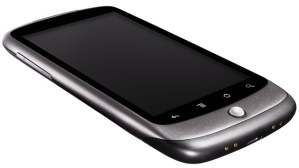
Last month, the Federal Communications Commission opened an inquiry into Verizon Wireless‘s early termination fees for smartphones, asking why the carrier had suddenly decided to double the fees it charges customers if they break their wireless contracts. Now, the FCC has expanded the scope of its inquiry (PDF), pulling the other big three U.S. mobile operators (Sprint, AT&T, and T-Mobile) plus Google into the debate, asking each one of them to detail how they determine early termination fees and apply them to customers. The letters of inquiry don’t mean the carriers or Google will be subject to sanctions—not yet, anyway. Right now, the FCC is just trying to figure out the process the carriers use to establish these fees&helip;and whether they’re fair to consumers.
“Our discussions with wireless companies since December indicate that there is no standard framework for structuring and applying ETFs throughout the wireless industry,” the FCC wrote in its inquiry letters. “At the same time, these fees are substantial (and in some cases are increasing) and have an important impact on consumers’ ability to switch carriers. We therefore believe it is essential that consumers fully understand what they are signing up for—both in the short term and over the life of the contract—when they accept a service plan with an early termination fee.”
The move is the first action from the FCC’s new Consumer Task Force, which has been set up to facilitate communication between federal agencies on consumer issued before the FCC.
The FCC has put a series of question to each company regarding how the set up ETF fees, the rationales for the fees, and what options consumers have to learn about the fees and manage their obligations. Google has been roped in due to fee structures on the Nexus One: customers who break their contract with T-Mobile will pay not only an early termination fee to the carrier, but a “equipment recovery fee” to Google to cover the cost of the device.
The companies have until February 23 to respond.
Editors' Recommendations
- The best phone plans for one person in 2023: our 6 favorites
- What is low-band 5G? Sub-6 explained
- Old phones will stop working with AT&T and T-Mobile. Here’s what to do about it
- The FCC has officially approved the merger between T-Mobile and Sprint
- T-Mobile-Sprint merger jumps another hurdle with official FCC approval


